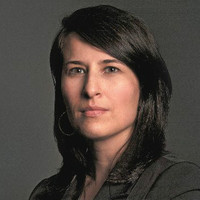Ginger Thompson is a Pulitzer Prize-winning senior reporter at ProPublica. Her most recent article is "How the U.S. Triggered a Massacre in Mexico."
“How many times have I written the phrase ‘a town that was controlled by drug traffickers?' I had no idea what that really meant. What does it mean to live in a town that’s controlled by drug traffickers? And how does it get that way? One of the things I was hoping that we could do by having the people who actually lived through that explain it to us was that—to bring you close to that and say, ‘No, here’s what that means.’”
Thanks to MailChimp, Casper, and Outside the Box for sponsoring this week's episode.





